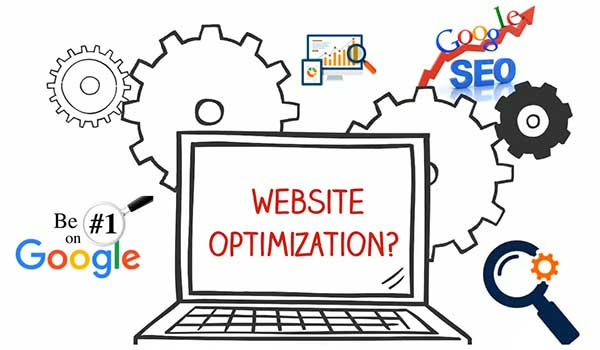
Website optimization is the process of improving a website’s performance, user experience, and search engine ranking to achieve better results. It involves various strategies and techniques to ensure a website loads faster, ranks higher on search engines, and provides a seamless experience for visitors.
Key Aspects of Website Optimization
1. Speed Optimization
- Reducing page load times for better user experience.
- Compressing images, minifying code, and using caching techniques.
- Enhancing server performance and choosing the right hosting plan.
2. Search Engine Optimization (SEO)
- Optimizing content with relevant keywords for better rankings.
- Improving meta tags, alt texts, and URL structures.
- Enhancing internal linking and obtaining high-quality backlinks.
3. Mobile Optimization
- Ensuring the website is fully responsive across all devices.
- Optimizing design, fonts, and images for mobile users.
- Using mobile-friendly navigation for easy browsing.
4. User Experience (UX) Optimization
- Improving website structure for intuitive navigation.
- Enhancing call-to-action (CTA) buttons for better conversions.
- Ensuring accessibility features for all users.
5. Content Optimization
- Creating high-quality, engaging, and relevant content.
- Updating old content to maintain accuracy and freshness.
- Optimizing blog posts, product pages, and landing pages.
6. Conversion Rate Optimization (CRO)
- A/B testing different elements (buttons, layouts, colors) to improve conversions.
- Streamlining the checkout process for e-commerce websites.
- Reducing friction in forms and lead generation pages.
7. Security Optimization
- Implementing SSL certificates for secure data transmission.
- Protecting against cyber threats like malware and hacking.
- Regularly updating plugins, software, and security patches.
Why is Website Optimization Important?
- Improves User Experience – A fast, user-friendly site keeps visitors engaged.
- Boosts SEO Rankings – Search engines rank optimized sites higher.
- Increases Conversions – Faster and well-structured sites convert better.
- Enhances Mobile Usability – Ensures smooth performance on smartphones and tablets.
- Reduces Bounce Rate – Visitors stay longer on optimized websites.
